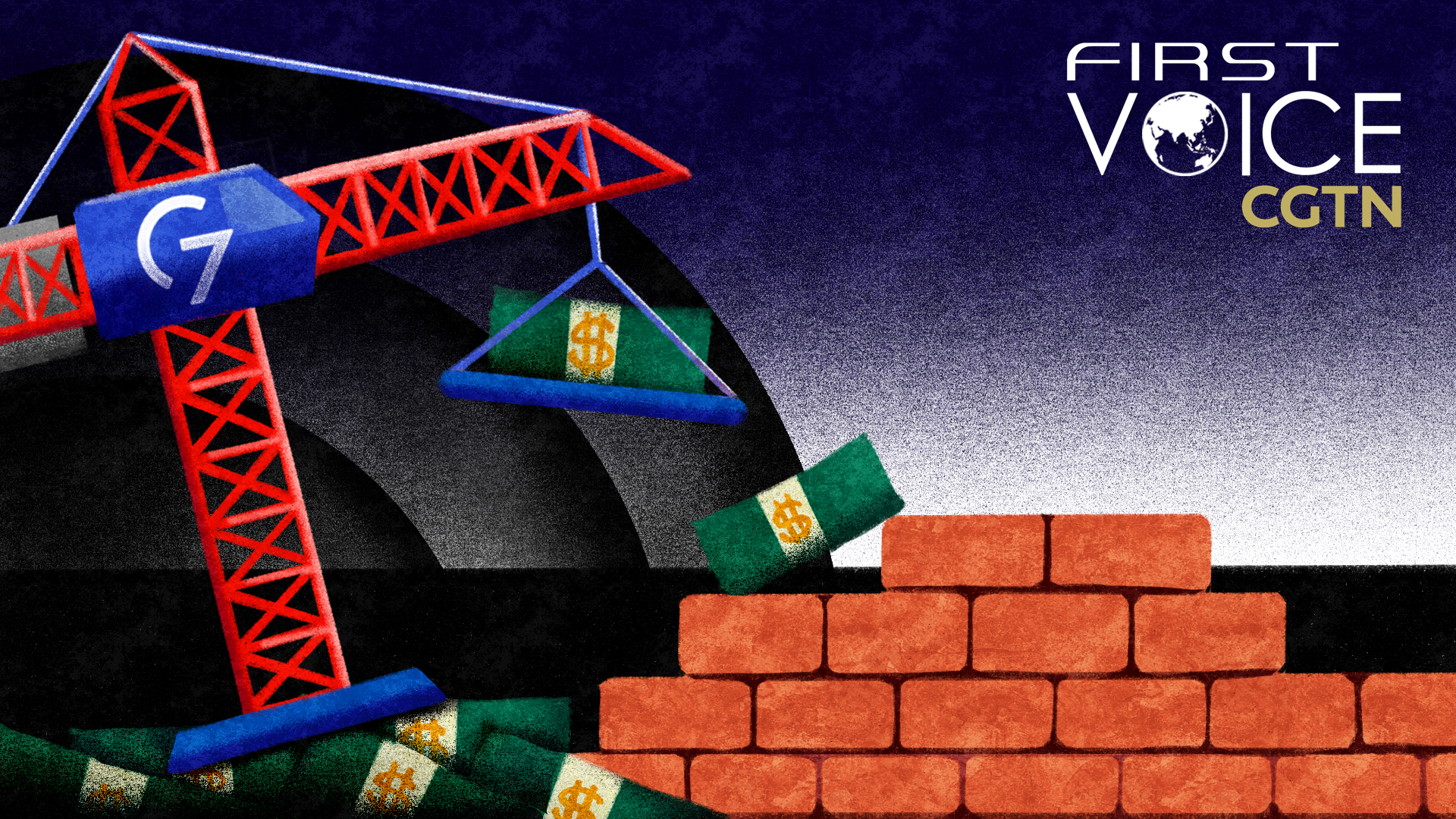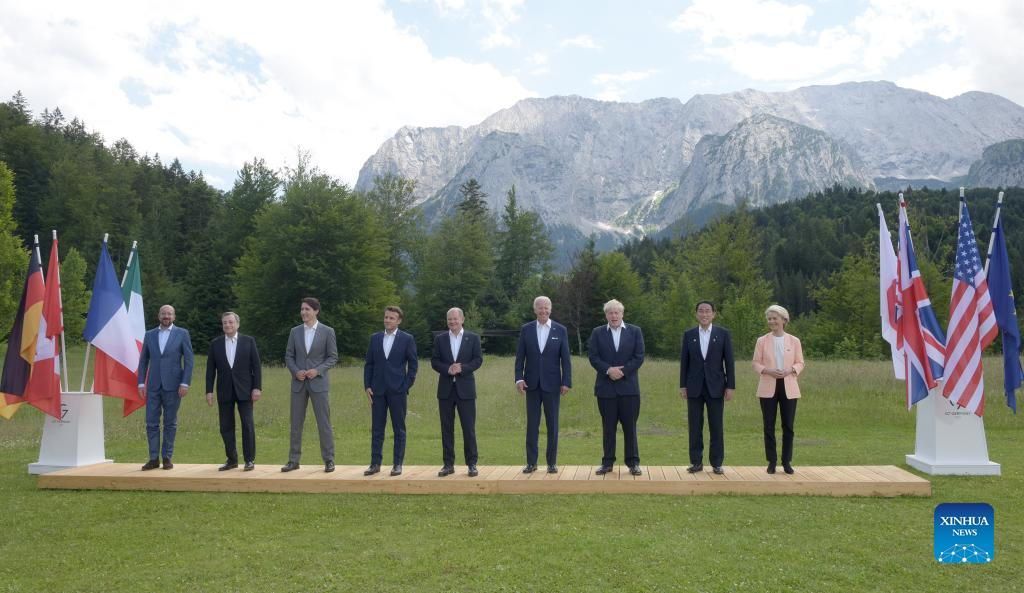
G7's pledge is very, very shaky. [Photo/CGTN]
Editor's note: CGTN's First Voice provides instant commentary on breaking stories. The daily column clarifies simmering issues and better defines the news agenda, offering a Chinese perspective on the latest global events.
At the G7 leaders' summit on June 26, the seven leaders pledged raising $600 billion over the next five years to finance infrastructure construction in developing countries. European Commission President Ursula von der Leyen described the program as a "positive powerful investment impulse to the world to show our partners in the developing world that they have a choice." U.S. President Joe Biden said that when "democracies do all that we can offer," autocracies will be defeated.
"We are offering better options for people around the world," Biden declared.
The intention is clear. For years, Western officials have been propagating that China's BRI and developmental assistances would get developing countries into heavy debt, through which China would then exercise its influence over them. The infrastructure plan, originally part of Biden's "Build Back Better World" agenda before it imploded, was first unveiled at G7's meeting in 2021. It was aimed at checking China's global influence by offering an "alternative" to China's BRI. To distinguish their initiative from China's, the United States and the G7 have keenly emphasized the fact that their plans come from "democratic countries" and it's better to take assistances from them than from "autocrats."
If roads and bridges were conscious, they'd be laughing hard at the notion that there are "democratic" bridges and "autocratic" bridges.
When China and the 170-plus countries and international organizations embarked on the BRI, forms of political systems were never part of the conversation. The conversation has always been over how to create concrete results for all parties involved. As reported by Bloomberg, a recent survey conducted by the Ichikowitz Family Foundation found, in the eyes of young Africans, China is seen as the foreign power having the biggest positive influence on them. 76 percent of them believe China is exerting positive influence on their lives. Ivor Ichikowitz, the chairman of the foundation, said that "we see a recognition of the fact that China is engaging in Africa at a time when very few others are."

L-R: European Council President Charles Michel, Italian Prime Minister Mario Draghi, Canadian Prime Minister Justin Trudeau, French President Emmanuel Macron, German Federal Chancellor Olaf Scholz, U.S. President Joe Biden, British Prime Minister Boris Johnson, Japanese Prime Minister Fumio Kishida and European Commission President Ursula von der Leyen, stand for a group photo during the Group of Seven (G7) Summit in Schloss Elmau in south Germany's Bavarian Alps on June 26, 2022. Leaders of the G7 kicked off their three-day annual summit on Sunday in Schloss Elmau in south Germany's Bavarian Alps amid lower expectations and protests. [Photo/Xinhua]
"In Africa, America has played a very very limited role," Ichikowitz said, "it has actually played an embarrassingly insignificant role in terms of actual investment, actual trade, actual building of infrastructure."
The United States and the G7 are simply late to the game. G7 still need five years to pool together the money – that is, if they can successfully pool together the money. As POLITICO described it, a lot of the funding "appears aspirational and seems to fall short of its lofty goals." When the plan was originally announced last year, it didn't take off because G7 wasn't able to get enough financial contribution. European officials, according to Bloomberg, blamed it on Biden's inability to get his own Build Back Better through Congress.
The prospect isn't any better today. The United States, which pledged to contribute $200 billion, is facing skyrocketing inflation, domestic divides that are hijacking the legislative process, and an upcoming contentious mid-term election. Above all, there's the Ukraine conflict that's diverting most of the attention. A recent Chatham House report stated that the changing priorities "risk a further shift in development policy towards bilateralism and fragmentation within the G7 and with recipient nations."
A developmental plan, created on the basis of ideological struggle and facing enormous political obstacles, has very little hope to rival a program that's been smooth sailing for nearly a decade. BRI functioned on a global scale because it rid itself of politics. G7's plan will go down the drain because its ultimate objective is politics, not development.

 中文
中文



